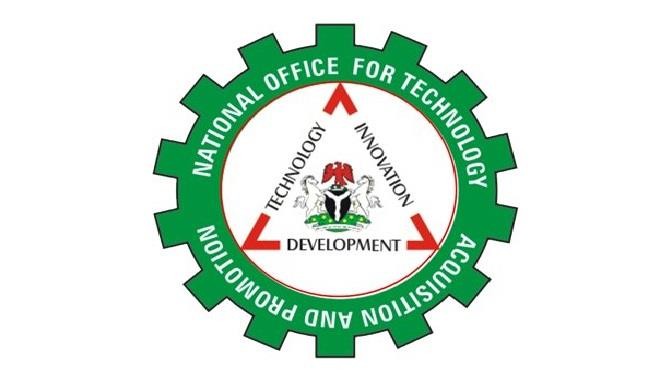- Home
- Grey Matter
- Regulator Spotlight - National Office For Technology Acquisition And Promotion (NOTAP)
Regulator Spotlight - National Office For Technology Acquisition And Promotion (NOTAP)
Posted on Fri 23 Feb 2024
- Download Resource
INTRODUCTION
In Nigeria’s technological landscape, the National Office for Technology Acquisition and Promotion (the “NOTAP”) is the primary government agency responsible for overseeing technology transfer activities in the country. Technology Transfer Agreements involve the exchange of technology-related assets, knowledge, and skills between entities, often from developed countries to developing ones like Nigeria. Established by the National Office for Technology Acquisition and Promotion Act of 2004 (the “Act” or “NOTAP Act”), NOTAP supervises and protects the interests of both local and foreign entities engaged in acquisition of technology.
In fulfilling its mandate to move Nigeria from the periphery to the dominant center of the global industrial power structure within the shortest possible time, NOTAP has adopted a technology acquisition strategy and a vibrant innovation, research and development commercialization program. To this end, NOTAP executes a series of pivotal functions designed to propel Nigeria's technological field forward.
This regulatory spotlight on NOTAP aims to shed light on its complex role within the legal and regulatory framework established by the NOTAP Act. Through this newsletter, we will delve into NOTAP’s core functions and activities, highlighting how they influence the regulatory environment for Technology Transfer Agreements. Our analysis will also cover the broad range of agreements eligible for registration, as specified in both the NOTAP Act and the 2018 Revised Guidelines for Registration and Monitoring of Technology Transfer Agreements in Nigeria (the “Guidelines”). This will offer a thorough insight into the regulatory landscape, crucial for fostering successful technological collaborations and innovations.

CORE FUNCTION
NOTAP encourages an efficient process for identifying and selecting foreign technology, thereby fostering an environment for innovation and progress. It plays a pivotal role in enhancing the negotiation skills of Nigerians, ensuring that parties involved in Technology Transfer Agreements negotiate the best possible terms and conditions. Additionally, NOTAP streamlines the adaptation of imported technology, facilitating the integration of cutting-edge solutions into Nigeria’s local context. Central to its mission is the registration of all contracts or agreements related to the transfer of foreign technology to Nigerian parties; a process that involves scrutinizing the objectives and intentions behind each agreement to ensure they align with national interests.1
REGISTRABLE AGREEMENTS
Under the NOTAP Act, any contract or agreement made between a Nigerian entity2 and a foreign entity in respect of subject matters specified in the Act, must be registered with NOTAP in accordance with the prescribed procedure.
Broadly categorized, these contracts or agreements encompass various purposes, such as the utilization of trademarks, the rights to use patented inventions, the provision of technical expertise, supply of engineering services and machinery, and the offering of operational and managerial assistance, along with personnel training.3 These aforementioned agreements are registered by NOTAP under the following titles: (a) Trademark Licence for manufacturing only (not for selling products or rendering services); (b) Technical Know-How; (c) Management Services; (d) Technical Services; (e) Consultancy; (f) Software License; (g) Franchise; (h) Research and Development (R&D); (i) Trademark Licence and Technical Know-How Agreement; (j) Technical Know-How & Management Services; (k) Hotel Management Agreement; (l) Consultancy and Technical Know-How; (m) Value Added Services; and (n) Shared Services.4 (“Registrable Agreement(s)” or “Agreements”).
REGISTRATION AND APPROVAL PROCESS
The Guidelines stipulate a thirty-day application window following the execution or finalization of the terms of a Registrable Agreement. Agreements submitted for registration after this period are subject to penalties for late submission.
To initiate the registration process, a formal application must be addressed to the Director General of NOTAP. This application should be accompanied with an executed copy of the Registrable Agreement, along with the requisite supporting documents. Submissions must be made through NOTAP’s dedicated registration portal, following payment of the prescribed presentation fees. Upon meeting all specified requirements, the Director General will issue a certificate in the prescribed format.
1.jpg)
In line with the registration requirements set forth by the NOTAP Act, the Guidelines enhance the regulatory framework by mandating the inclusion of capacity building initiatives in Technology Transfer Agreements.5 This requirement underscores the commitment of the Nigerian government to knowledge transfer and the development of local expertise. According to the Guidelines, it is essential that every Registrable Agreement includes specific provisions for capacity building, thereby emphasizing the critical importance of skill development among Nigerians in the field of technology acquisition.
Notably, the Guidelines specify that all agreements must include detailed information regarding Nigerians understudying foreign experts.6 This strategic provision aims at ensuring not only the seamless transfer but also the effective domestication of technology in Nigeria. By mandating the submission of comprehensive details on the individuals understudying the experts, the Guidelines actively contribute to the overarching goal of fostering local expertise and reducing dependence on foreign know-how.
NOTAP may approve these Agreements with or without conditions. When conditions are applied, Agreements that serve national interest may undergo adjustments or modifications regarding their scope of services. This process may also require the submission of relevant documents, including invoices, tax clearance certificates, and annual audited accounts, as applicable. Conversely, if it is determined that the scope of services in the Agreements is: (i) equitable for all parties involved; (ii) represents value for money; and (iii) complies with the provisions of the Act, the NOTAP may grant unconditional approval. Once approval is issued by NOTAP, companies are obligated to fulfill all stipulations outlined in the approval letter.

Nevertheless, the Director General has the authority to deny registration if Agreements deviate from the required specifications. Such deviations may include: (i) transfer of readily available technology within Nigeria; (ii) insufficient consideration for the acquired technology; (iii) including provisions that confer excessive control to the supplier; (iv) imposing restrictions on technological research; (v) obligations to exclusively source from the transferor; and (vi) placing unwarranted constraints on product resale. Additionally, Agreements that include provisions: (i) imposing foreign jurisdiction; (ii) exceeding a ten-year duration; and (iii) mandating unnecessary design changes will also be considered grounds for rejection.7
EFFECT OF REGISTRATION
The Act mandates that payments within Nigeria to a foreign party under a registrable contract can only be made upon presenting a NOTAP-issued certificate along with a certified copy of the contract.8 This requirement was further underscored in the case of Stanbic IBTC Holdings Plc v. Financial Reporting Council of Nigeria (FRCN) & Anor (2015), (2018) LCN/12169 (CA). The Court of Appeal clarified by holding that failure to register a contract prevents payment through, or on the authority of the Central Bank of Nigeria, or a licensed bank in Nigeria.
CONCLUSION
In conclusion, as Nigeria advances its technological landscape, the regulatory oversight of NOTAP becomes indispensable in creating an environment ripe for innovation, collaboration, and sustainable development. The delicate equilibrium maintained between welcoming foreign technology transfers and safeguarding national interests exemplifies the regulatory wisdom underpinning the NOTAP Act and the Guidelines.
As we navigate the ever-evolving terrain of technology transfer, it is crucial for stakeholders, businesses, and innovators to be vigilant and well-informed about the changing regulatory terrain. A proactive approach not only ensures compliance with legal standards but also fosters a setting where lasting and fruitful partnerships can flourish.
Banwo & Ighodalo possesses the requisite expertise and competence to provide legal advisory services on technology transfer and licensing matters including the negotiation, drafting and registration of these agreements as mandated by Nigerian law.
This newsletter is only intended to provide general information on the subject matter and does not by itself create a client/attorney relationship between readers and our Law Firm or serve as legal advice. We are available to provide specialist legal advice on the readers’ specific circumstances when they arise.
[1] Section 4 (a)- (e) of NOTAP Act and Regulation 1.2 (a) – (e) of the Guidelines.
[2] Entity in this context refers to natural and legal persons.
[3] Section 4 (d) (i) – (vi) of NOTAP Act and Regulation 1.2 (d) (i)- (vi) of the Guidelines.
[4] Regulation 2.2 of the Guidelines.
[5] Regulation 2.1 (c) of the Guidelines.
[6] Ibid.
[7] Section 6 (2) of the Act.
[8] Section 7 of the Act.
More Insight
 Tue 16 Jul 2024
Tue 16 Jul 202450% Deposit For Prosecution Of Tax Appeals In Nigeria And ...

 Wed 3 Jul 2024
Wed 3 Jul 2024The WHT Regulations 2024 and what businesses should expect










